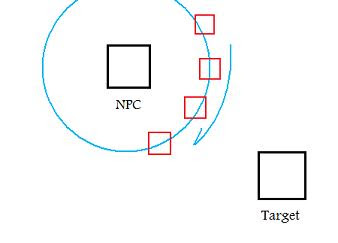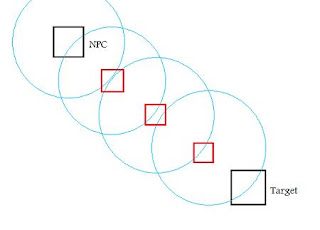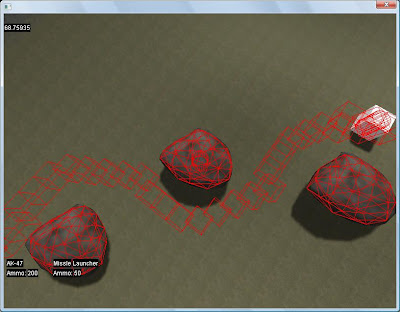I had a challenge last week from my partner for this game project. Allow an NPC to come up with a quick way to navigate to a particular place, even if the environment around him is dynamic.
Some high-budget games use static node path meshes, which must be a final step in production for each map. A combination of theses meshes in different formats have been used in different games, and some use smoothing algorithms to make the web of node seem more natural. I wanted a different approach that didn't require a web of objects hand placed into the world.
I came up with a rotational path collection.

On a pivot, a box would rotate several degrees and create a collection of distances from the target. After the closest one is found, it adds this entity to a PathCollection, then moves the pivot to this new closer spot.

The cycle repeats itself until the radius is close enough to the target.

I used a collection of Entities to avoid storing a minimum radius, and calculated terrain slope to manage where NPCs can actually travel. Changing the rotating radius and amount of degrees for each iteration can be used to create a low-density path compared to my example.
The best part about this approach is you can store these paths in memory, removing the data as necessary.


 On a pivot, a box would rotate several degrees and create a collection of distances from the target. After the closest one is found, it adds this entity to a PathCollection, then moves the pivot to this new closer spot.
On a pivot, a box would rotate several degrees and create a collection of distances from the target. After the closest one is found, it adds this entity to a PathCollection, then moves the pivot to this new closer spot. The cycle repeats itself until the radius is close enough to the target.
The cycle repeats itself until the radius is close enough to the target.